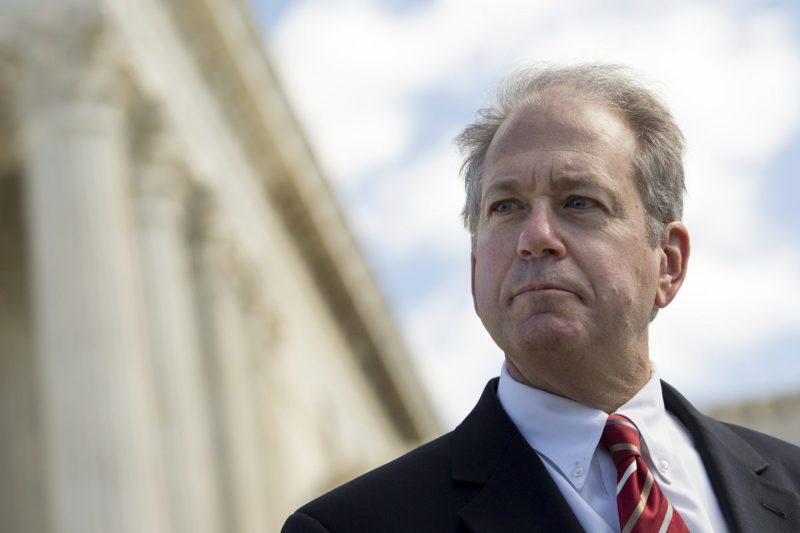Anti-Choice Group Wants National Abortion Data Reporting Law
Anti-choice activists claim that despite the evidence, the number of complications from abortion is higher than is being reported. States that track abortion care data have shown the procedure to be exceedingly safe.

A leading anti-choice organization is calling for a national database of abortion statistics and increased reporting requirements for states—proposals seen as part of a strategy to justify laws restricting access to abortion care.
The U.S. Supreme Court in June struck down provisions of Texas’ omnibus anti-choice law known as HB 2. The ruling relied heavily on research that showed abortion care was a safe and well regulated procedure. Anti-choice activists have long disputed those claims.
Clarke Forsythe, acting president of Americans United for Life (AUL), told Politico that there is not enough data on abortion. “The abortion advocates like to talk in vague terms about abortion but we need specifics,” Forsythe said. “We don’t have a national abortion data collection and reporting law.”
The Centers for Disease Control and Prevention (CDC) has collected “abortion surveillance” data since 1969. The CDC published the most recent report on abortion statistics in 2012.
Abortion surveillance reports are created by compiling data from health agencies, provided voluntarily to the CDC, in all 50 states as well as the District of Columbia and New York City. The data includes deaths from abortion related complications, but does not include the number of complications that don’t result in deaths.
Reporting requirements for abortion statistics vary from state to state, with 46 states requiring that abortion providers submit regular reports, according to the Guttmacher Institute. Most states report the number of abortion procedures performed as well as the type of procedure, the gestation of the pregnancy, and demographic data of the patient.
There are 27 states that require providers to report the number of complications from abortion procedures.
The self-described “legal architect” of the anti-choice movement, AUL has been heavily involved in lobbying for state and federal laws that restrict access to abortion. The organization creates copycat legislation and distributes anti-choice proposals to state lawmakers, who then push the measures through legislatures.
Forsythe took a victory lap Monday for the organization’s role in promoting bills from the AUL’s “playbook of pro-life legislation” that were introduced this year in state legislatures. “AUL continued to assist states considering health and safety standards to protect women in abortion clinics,” Forsythe said in a statement.
Dozens of bills to increase reporting requirements have been introduced in state legislatures over the past several years. These proposals include several types of reporting requirements for abortion providers, and many of the provisions are similar to those found in AUL model legislation.
Arizona legislators in 2010 passed SB 1304, which required abortion providers to submit annual reports to the state and required the state Department of Health Services (DHS) to publish an annual report.
The Republican-backed legislation is similar to copycat legislation drafted that same year by AUL.
Since the law’s passage there have been very few complications resulting from abortion procedures reported in the state: from 2011-2014, less than 1 percent of abortions procedures in the state resulted in complications.
Arizona reported that 137 patients experienced complications out of 12,747 abortion procedures in 2014; 102 patients experienced complications out of 13,254 abortion procedures in 2013; 76 patients had complications out of 13,129 abortion procedures in 2012; 60 patients experienced complications out of 14,401 abortion procedures in 2011.
Dr. Daniel Grossman, a physician at the University of California, San Francisco who studied the impact of HB 2 for the Texas Policy Evaluation Project (TxPEP), told Politico that abortion has been shown to be exceptionally safe medical procedure.
“There’s already a lot of data that have been published documenting how safe abortion is in the U.S.,” Grossman said.“The abortion complication rate is exceedingly low.”
Anti-choice activists claim that despite the evidence, the number of complications from abortion is higher than is being reported. Joe Pojman, the executive director of the Texas Alliance for Life, told Politico that “better data” is needed.
Texas has required reporting of the number of complications from abortion procedures since 2013, and the data has shown that abortion complications are exceedingly rare. There were 447 complications out of 63,849 procedures in 2013 and 777 complications out of 54,902 procedures in 2014.
Pojman said that the Texas data “defies common sense” and that the complications are “are much smaller than what one would expect.”
The Texas abortion statistics reveal that it is safer to have an abortion than to carry a pregnancy to term in the state. Between 2008 and 2013, the most recent years for which data is available, there were 691 maternal deaths in Texas, compared to one death due to abortion complications between 2008 and 2014.
“There’s no sign that there’s a hidden safety problem happening in Texas,” Grossman said.
